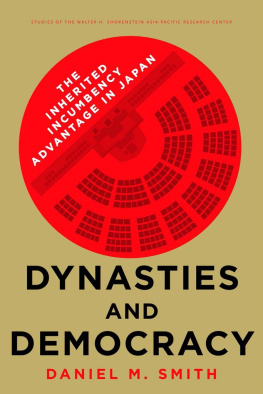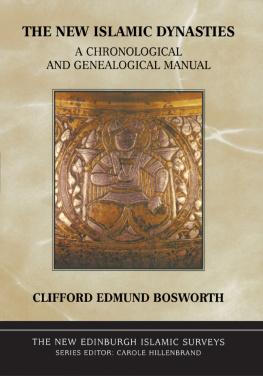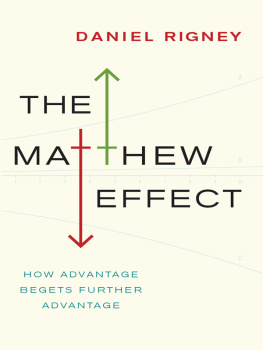Stanford University Press
Stanford, California
2018 by the Board of Trustees of the Leland Stanford Junior University. All rights reserved.
No part of this book may be reproduced or transmitted in any form or by any means, electronic or mechanical, including photocopying and recording, or in any information storage or retrieval system without the prior written permission of Stanford University Press.
Printed in the United States of America on acid-free, archival-quality paper
Library of Congress Cataloging-in-Publication Data
Names: Smith, Daniel M., 1982 author.
Title: Dynasties and democracy : the inherited incumbency advantage in Japan / Daniel M. Smith.
Description: Stanford, California : Stanford University Press, 2018. | Series: Studies of the Walter H. Shorenstein Asia-Pacific Research Center | Includes bibliographical references and index.
Identifiers: LCCN 2017050717 (print) | LCCN 2017055065 (e-book) | ISBN 9781503606401 (e-book) | ISBN 9781503605053 | ISBN 9781503605053 (cloth : alk. paper) | ISBN 9781503606401 (e-book)
Subjects: LCSH: PoliticiansFamily relationshipsJapan. | FamiliesPolitical aspectsJapan. | Incumbency (Public officers)Japan. | Political partiesJapan. | DemocracyJapan. | JapanPolitics and government1945
Classification: LCC JQ1681 (e-book) | LCC JQ1681 .S6895 2018 (print) | DDC 328.52/073dc23
LC record available at https://lccn.loc.gov/2017050717
Typeset by Newgen in 11/14 Garamond
Cover design: Christian Fuenfhausen
Cover image: SHUTTERSTOCK
To my mother and father.
Preface and Acknowledgments
Democracy is supposed to be the antithesis of hereditary rule by family dynasties. And yet, looking around the world, one sees that democratic dynasties continue to persist. They have been conspicuously prevalent in Japan, where more than a third of all legislators and two-thirds of all cabinet ministers in recent years have come from families with a history in parliament. Such a high proportion of dynasties is comparatively unusual and has sparked serious concerns over whether democracy in Japan is functioning properly.
In this book, I introduce a comparative theory based on a framework of supply and demand to explain the causes and consequences of dynasties in democracies like Japan. I argue that members of dynasties enjoy an inherited incumbency advantage in all three stages of a typical political career: selection, election, and promotion. However, I argue that the nature and extent of this advantage, as well as its consequences for elections and representation, varies by the institutional context of electoral rules and candidate selection methods within parties. In the late 1980s, roughly half of all new candidates in Japans long-ruling Liberal Democratic Party (LDP) were political legacies. However, electoral system reform in 1994 and subsequent party reforms have changed the incentives for party leaders to rely on dynastic politics in candidate selection. A new pattern of party-based competition is slowly replacing the old pattern of competition based on localized family fiefdoms. Nevertheless, path dependence and a continue supply of legacy hopefuls impedes more dramatic change.
This book is the end product of several years of feedback from countless individuals. I owe a debt of gratitude to the many mentors and friends who helped me develop the project and see it through to completion. My first introduction to Japanese politics was at the University of California, Los Angeles, where an undergraduate course taught by Michael Thies and Linda Hasunuma set me on a path of inquiry that has become the main focus of my research. My undergraduate thesis adviser, Miriam Golden, deserves credit for pushing me to pursue graduate study at the University of California, San Diego, after first going to Tokyo to study Japanese politics with Steve Reed at Chuo University on a Ministry of Education, Culture, Sports, Science, and Technology (MEXT) research fellowship. Over the course of nearly two years, Steve patiently imparted his vast knowledge of Japanese politics and prepared me for graduate school better than anyone else possibly could have. The idea to study the causes and consequences of Japans political dynasties from a comparative perspective sprang forth in 2006 during one of our many conversations.
At UCSD, I was fortunate to be trained and mentored by many others, including the members of my dissertation committee: Kaare Strm (chair), Matt Shugart, Ellis Krauss, Gary Cox, Gary Jacobson, and Krislert Samphantharak. Kaare Strm thoughtfully guided me through graduate school and has created more opportunities for me than I can ever repay. Matt Shugart, Ellis Krauss, and Gary Cox also played integral roles in shaping my ideas, improving the direction of my research, and helping me to learn and grow as a scholar. Countless other faculty mentors and peers at UCSD aided me to slowly, but purposefully, build this project, including Yasu-hiko Tohsaku, Eiko Ushida, Takeo Hoshi, Ulrike Schaede, and Megumi Naoi.
Later, my ideas benefited from the feedback and support of colleagues at the Walter H. Shorenstein Asia-Pacific Research Center (Shorenstein APARC) at Stanford University and in the Department of Government at Harvard University. At Stanford, I thank Phillip Lipscy, Kenji Kushida, Takeo Hoshi, Dan Sneider, Gi-Wook Shin, and the administrative staff at APARC. At Stanford University Press, I thank especially Geoffrey Burn, Kate Wahl, Marcela Maxfield, Anne Fuzellier, Stephanie Adams, and Olivia Bartz. At Harvard, I am grateful to my friends and colleagues in the Department of Government, the Reischauer Institute of Japanese Studies, the Weatherhead Center for International Affairs and its Program on US-Japan Relations, the Minda de Gunzburg Center for European Studies, and the Institute for Quantitative Social Science for their support and encouragement. I especially want to thank Susan Pharr and Torben Iversen, who have served as invaluable faculty mentors, and Mark Ramseyer, Ezra Vogel, Stephen Ansolabehere, Jeff Frieden, Kenneth Shepsle, Jim Snyder, Peter Hall, Daniel Ziblatt, Dustin Tingley, Arthur Spirling, Eric Beerbohm, Ryan Enos, Horacio Larreguy, Gwyneth McClendon, Josh Kertzer, Jon Rogowski, Matt Blackwell, Yuhua Wang, and Shin Fujihira for feedback and conversations that helped sharpen my ideas and improve my analysis.
Several scholars in Japan have provided helpful comments, support, or insight, including Steve Reed, Masataka Harada, Yukio Maeda, Michio Muramatsu, Naoto Nonaka, John Campbell, Kenneth McElwain, Kuniaki Nemoto, Hiroshi Ishida, Kaori Shoji, Kentaro Fukumoto, Hidenori Tsutsumi, Naofumi Fujimura, Greg Noble, and participants in workshops at the Institute of Social Science at the University of Tokyo. Outside of Japan, I thank Shane Martin, Jon Fiva, Benny Geys, Olle Folke, Johanna Rickne, Pablo Querubn, Kanchan Chandra, Brenda van Coppenolle, Carlos Velasco Rivera, Amy Catalinac, Len Schoppa, Frances Rosenbluth, Mike Tomz, Juan Pablo Micozzi, Kiyoteru Tsutsui and countless others in audiences at conferences and workshops at Harvard, Yale, the Instituto Tecnolgico Autnomo de Mxico (ITAM), Princeton, Stanford, the University of Michigan, and the Norwegian Business School (BI), for conversations and critiques that have moved this project along. Steve Reed, Susan Pharr, Mark Ramseyer, Robert Pekkanen, Jon Fiva, Masataka Harada, Gary Cox, Torben Iversen, Max Goplerud, Shiro Kuriwaki, Jos Ramn Enrquez, Brandon Martinez, Griffin Gonzalez, graduate students in my seminar on political institutions in fall 2016, and anonymous reviewers read and commented on all or large parts of the manuscript. Their feedback was crucial in the final stretch.












